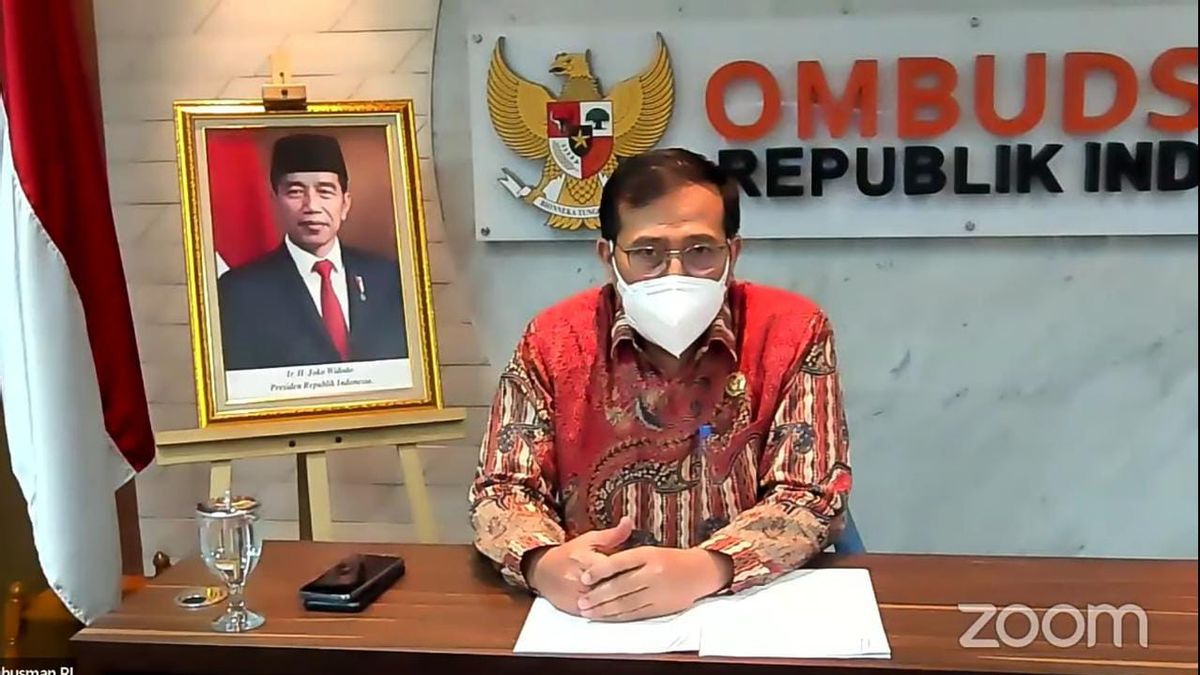JAKARTA - The Indonesian Ombudsman found maladministration in the process of implementing the National Insight Test Assessment (TWK) for employees of the Corruption Eradication Commission (KPK).
This was conveyed by the Chairman of the Indonesian Ombudsman Mokhammad Najih on Wednesday, July 21.
"In general, we found maladministration from the results of the examination," Najih said at an online press conference broadcast on the Indonesian Ombudsman's YouTube account.
He explained that his institution focused on examining allegations of maladministration on the first three issues. First, in a series of policy formation processes, the process of transitioning the status of KPK employees to State Civil Apparatus (ASN).
Second, in the process of implementing a series of status transfers and finally at the stage of determining the results of the TWK assessment.
"Three things that the ombudsman found potential for maladministration," he said.
Furthermore, these findings will be submitted to the KPK leadership, the head of the National Civil Service Agency (BKN), and President Joko Widodo.
"We have submitted a letter of recommendation to the president so that the findings of maladministration found by the ombudsman examination can be followed up and further steps are taken," said Najih.
Previously reported, as many as 75 KPK employees were declared not to have passed the TWK which was a condition for changing employee status to State Civil Apparatus and disabled.
Those who did not pass included senior investigator Novel Baswedan, Chairman of the KPK Employee Forum Yudi Purnomo, to the Head of the Anti-Corruption Learning Task Force (Satgas) Hotman Tambunan of the KPK, and a number of investigators who are working on the Rasuah case.
After the test was run, dozens of these employees considered that a violation had occurred. Thus, they complained about the process and its implementation to a number of institutions such as the Indonesian Ombudsman and the National Human Rights Commission.
The English, Chinese, Japanese, Arabic, and French versions are automatically generated by the AI. So there may still be inaccuracies in translating, please always see Indonesian as our main language. (system supported by DigitalSiber.id)








